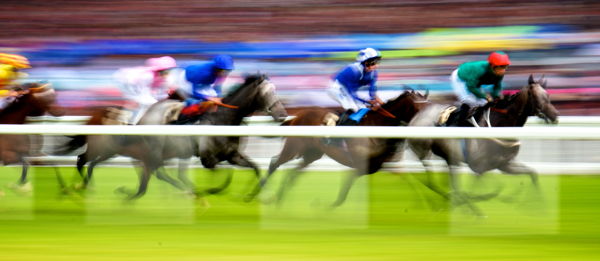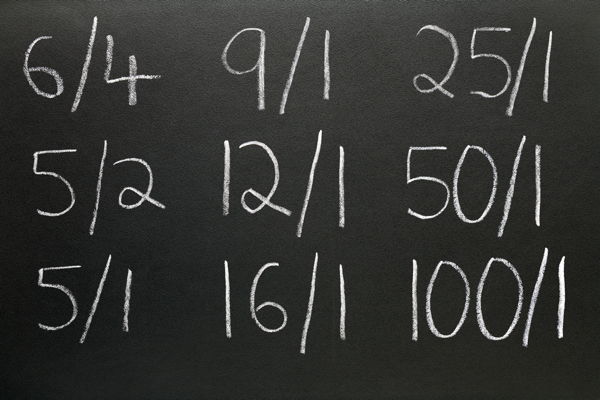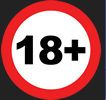 |
RacingBetter News |
| Monday 7th March 2022 | |
How Do Odds Work In Horse Racing?
Understanding odds is crucial for both newcomers and oldies in sports betting. Without a good understanding of what odds are, how to calculate them, and how they work, you might not be able to place a successful bet not to talk of winning one. This article will explain what horse racing odds are and how differently they work from other sports betting.

What Are Odds In Betting?
This section is dedicated to you if you are a newcomer to horse betting. So what are the odds in betting? Odds are ratios used to represent the fraction of how much a bookmaker stakes with a bet. In simpler terms, it is a ratio that represents how much a bettor gets with every wager they stake.
For example, if there's an odd of 9:1 (which can also be in fraction format: 9/1), then that means that you will get GBP£9 for every GBP£1 you bet. So if you bet GBP£10, for instance, you'll get GBP£90 winnings plus your original stake which equals GBP£100. It is that simple.
Now that you understand what odds are and how they work, the next thing to learn is how they are calculated in horse racing.
Odds in Horse Racing
Odds work a little bit differently in horse racing (and any other racing game). Usually, odds can be displayed as decimals or fractions (ratios). But in horse racing, they are primarily displayed as fractions. Therefore, when it comes to horse racing bets, you are most likely to see things like 10/1 (or 10:1), 4/5 (4:5), and so on instead of 2.5 or 9.0
But before going deep into the characteristics of odds in horse racing, the definition would be a wise place to start.
Horse racing odds have the same definition as all other odds. They are mathematical depictions of how much you get when you stake an amount (bet) on a horse. You can also use odds to depict which horse has the highest probability of winning - but because luck works differently, this purpose for horse racing betting odds is relative. So you might need to adopt other horse racing betting strategies to win big.
However, there are uneven odds and even odds. Uneven odds have two unlike numbers on each side, like 9/2 or 8/2. But even odds have the same number on both sides, like 1/1 or 4/4. Usually, they are represented as 'even' to show that the amount you stake is the amount you will win (plus your original stakes). Then you can also have single-digit odds - like 10 or 16. It simply means that the odd is placed against 1. So instead of having 10/1, you will likely see just 10.
Another thing you need to note about odds in horse racing is they are not all the same. Odds change very frequently, and it differs from horse to horse and track to track. If there are 10 horses on a race track, all 10 horses will have different odds against them, and it will also be different from other tracks and their horses.
There are different types of horse racing bets. There are also many ways to play horse betting games, but the odds all work the same way.

How Horse Racing Odds Work
Another way to interpret this is how to calculate odds in horse racing.
Earlier in this guide, it has already been mentioned that odds appear as fractions or ratios in horse racing, especially in Australia. So the numerator (that is, the first number) represents how much you'll win, and the denominator (the second number) shows how much you will stake to get the win.
To better explain this, look at this example:
If a horse has an odd ratio of 7:2 against its position, then for every GBP£2 you stake, you will win an extra GBP£7, making your winning equal to GBP£9 (don't forget to add your initial stake, which is GBP£2). That means that if you place a bet of GBP£100 for this horse to win. You will make a GBP£350 profit and a total of GBP£450 win.
The calculation for payouts is; (The numerator * your stake/ the denominator) + your stake. Odds that are placed against 1 are easier to calculate. Like 10:1 is GBP£11, and 20:1 is GBP£21.
Conclusion
There is more to odds in horse racing than what's explained here. However, everything written in this guide is the foundation for any further information you need to explore. Using this guide, you can start your journey in horse race betting, and the more you practice, the better you get. Make sure to keep in touch for more information on horse racing betting guides.







